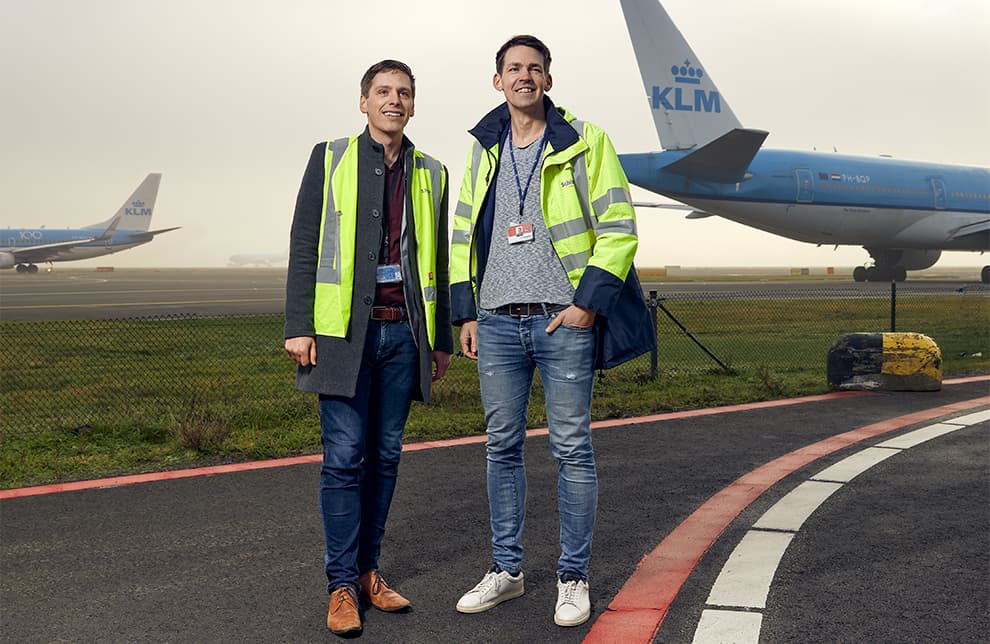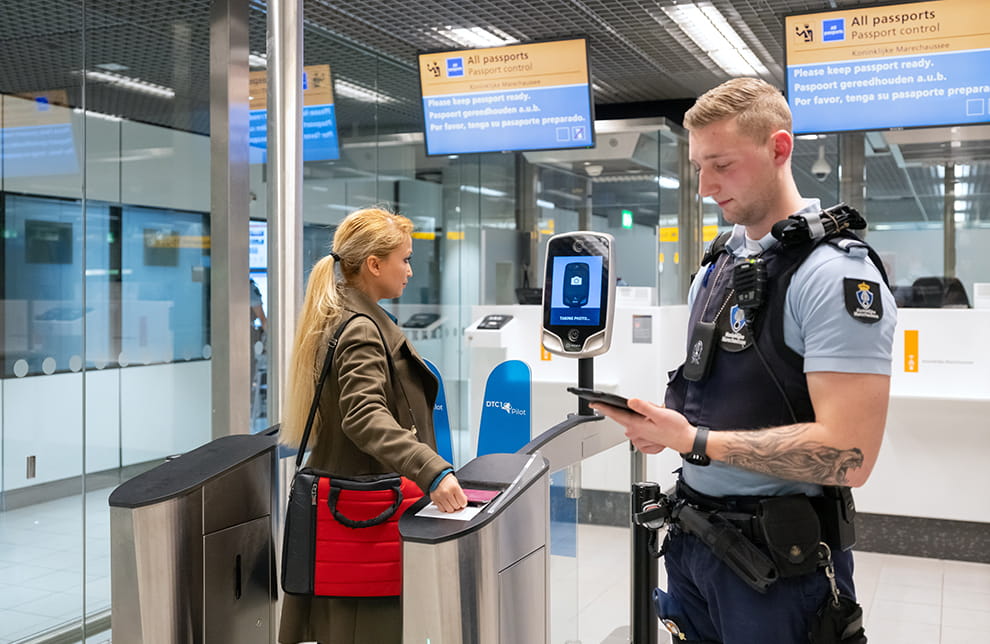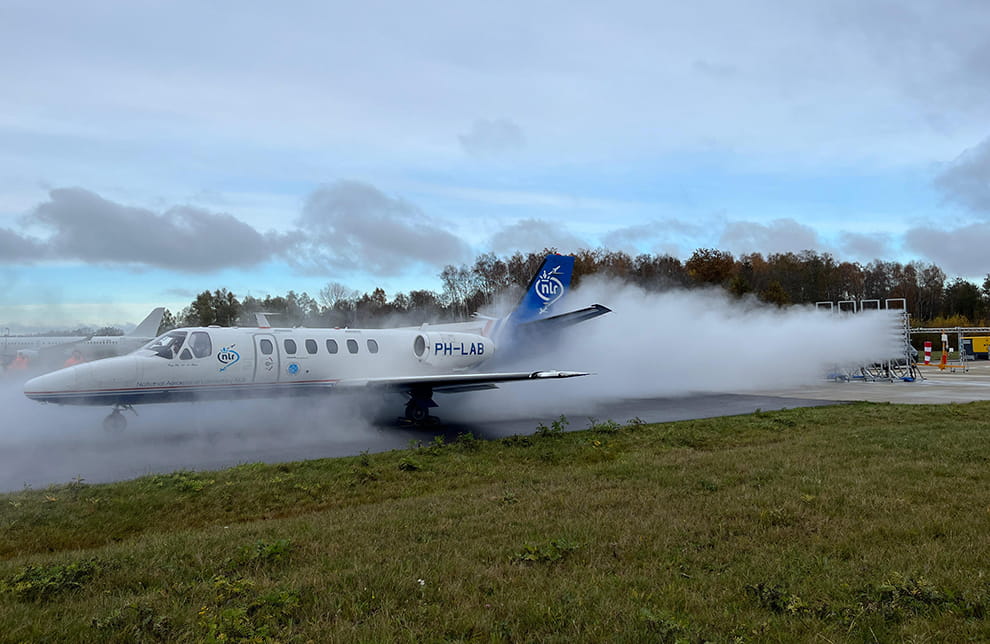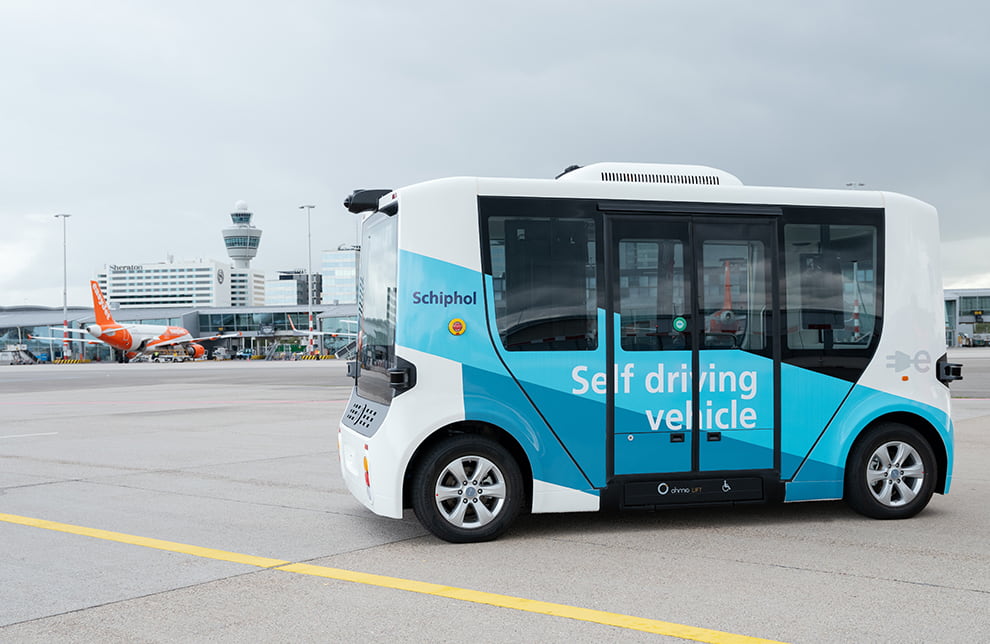Interview Dirk Bresser and Simon Prent: Sustainable taxiing

Dirk Bresser, innovator, OPS:
‘When an aircraft is taxiing, the engines are still running. This produces emissions of CO², NOx and (ultra-)fine particulates. Schiphol aims to be a zero-emissions airport by 2030. This means we need to do something about taxiing in order to achieve that. With sustainable taxiing, the idea is that aircraft no longer use their engines when taxiing, but are towed to and from the runway by a tow truck. This saves on kerosene and reduces emissions.’
Simon Prent, innovator, OPS:
‘That may sound simple, but we have a long way to go. Together with the sector, we’ve just launched the first phase. We’ll soon see the arrival of Taxibot, a special tow truck, at Schiphol. There are only six of them worldwide. One way we will use it is to explore how we can incorporate sustainable taxiing in operations and how this can be achieved at scale. We expect to publish a feasibility study later this year.’
Read the previous blogs
-
Tap and go with your Digital Travel Credential!
Published on:Can you board and cross the border faster with a digital travel document? At the request of the EU, we are testing a DTC together with the government and KLM.

-
Test capturing ultrafine particles with droplets
Published on:We are working diligently to reduce the amount of ultrafine particles. A possibility is the use of water droplets to remove ultrafine particles from the air.

-
Autonomous Bus Initiative
Published on:Our ambition: operating the world's most sustainable and top-tier airports by 2050. With this in mind we're putting autonomous buses to the test on airside.
